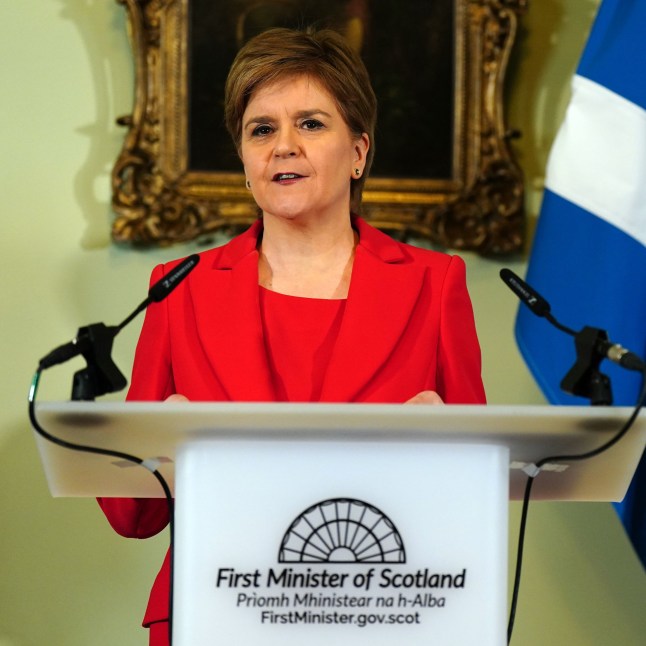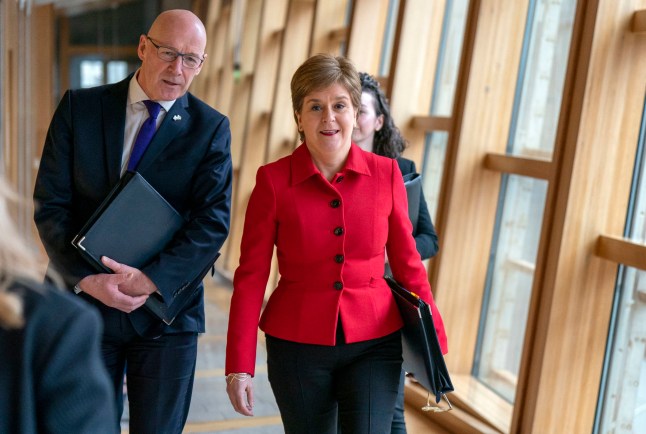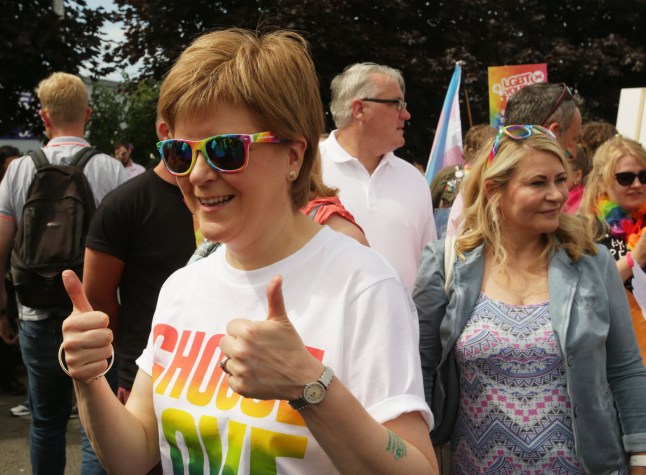Nicola Sturgeon is resigning as Scotland’s first minister, saying the ‘time is right to make way for someone else’.
The Scottish National Party (SNP) leader announced that she will remain in office until her successor is chosen during a news conference in Edinburgh this morning.
She insisted her departure is ‘not a reaction to short-term pressures’ – likely referencing the heated debate around the Gender Recognition Reform.
The decision may seem ‘sudden’ but it is an issue ‘I have been wrestling with’ for some time, she said on Wednesday.
Ms Sturgeon has named her job the ‘best one in the world’ and ‘the privilege of my life’.
Yet, in a speech that will remind many of Jacinda Ardern’s last month, she went on to say that leading a country ‘takes its toll on you and those around you’.
‘Since my very first moments in the job I have believed a part of serving well would be to know almost instinctively when the time is right to make way for someone else’, she said.
‘In my head and in my heart I know that time is now. That it’s right for me, for my party and my country.’

More Trending
Ms Sturgeon said she no longer felt she could give the job of first minister everything it deserves, and said she feels she has a duty to say so now.
She has named leading the country through the Covid pandemic ‘by far the toughest thing I’ve done’, adding that she is only just comprehending ‘the physical and mental impact of it on me’.
‘If the only question was “can I battle on for another few months?”, then the answer is yes, of course I can’, she went on.
‘But if the question is, “can I give this job everything it demands and deserves for another year, let alone for the remainder of this parliamentary term – give it every ounce of energy that it needs in the way that I have strived to do every day for the past eight years?” – the answer honestly is different.’
The 52-year-old has acknowledged that some will ‘not be sad’ to see her go and said she ‘wasn’t expecting violins’ – but reminded people that she is ‘still a human being’.
The Scottish politician has confirmed she will remain an MSP ‘until, certainly, the next election’.
Her resignation is said to be raising ‘huge questions’ for the future of her party, with no obvious frontrunner for leader.

More Trending
Tributes have been paid to her today, with Ian Blackford, Scottish MP and former leader of the SNP in Westminster, naming her the ‘finest First Minster Scotland has ever had’.
Prime Minister Rishi Sunak – who has clashed with Ms Stugeon in the past – has thanked her for her ‘long-standing service’ and said he ‘wishes her all the best’.
Ms Sturgeon has been first minister since November 2014, when she took over from Alex Salmond following the independence referendum. She has secured election successes at every poll since then.
Over the course of her political career, she has continued to push for Scottish independence, campaigning for a second referendum on the decision.
Despite not achieving her goal while in office, she said during her announcement that it is ‘a cause that is being won’ – adding that she ‘intends to be there when it is won’.
In recent weeks, legislation from her government that pushed through gender reforms has captured attention.
The UK Government blocked the Gender Recognition Reform (Scotland) Act which made it easier to self-identify as a chosen gender.
A debate over the housing of transgender prisoners has also been the source of controversy.

Ms Sturgeon said today she regrets not being able to bring a more ‘rational’ debate on some issues and believes her own involvement in them has created division.
Ms Sturgeon is currently MSP for Glasgow Southside having been, before boundary changes, MSP for Govan between 2007 and 2011.
Before entering the Scottish Parliament as a regional MSP for Glasgow in 1999 she worked as a solicitor in the Drumchapel Law and Money Advice Centre in Glasgow.
In government she served as Cabinet Secretary for Health and Wellbeing between May 2007 and September 2012 and then Cabinet Secretary for Infrastructure, Investment and Cities with responsibility for government strategy and the constitution until November 2014.
Throughout this period she also served as Deputy First Minister of Scotland.
She became leader of the SNP on November 14, 2014 and was sworn in as First Minister on November 20, 2014.
Her emotional statement came 90 minutes after Labour leader Sir Keir Starmer banned predecessor Jeremy Corbyn, 73, from standing for the party at the next general election.
MORE: Nicola Sturgeon was Scottish politics – her departure will leave the country in a very strange place
MORE: UK government to block Scottish gender recognition bill in unprecedented move
Get in touch with our news team by emailing us at webnews@metro.co.uk.
For more stories like this, check our news page.












